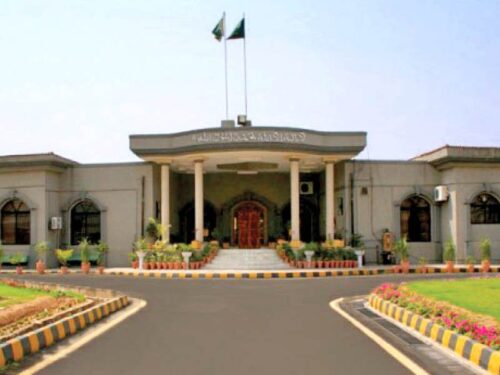By: M. Azlan Khan
On the 27th of October each year, Pakistan observes “Kashmir Black Day,” to commemorate the day when India first illegally occupied the Kashmir, initiating the strife that has been hanging fire for more than seven decades. This annual observance serves as a poignant reminder of the protracted dispute over Kashmir, a region whose complex history has been marred by conflict and the suffering of its people, a region that has been at the heart of a decades-long dispute between India and Pakistan. Beyond the geopolitical complexities, at its core, the Kashmir issue is about the rights and aspirations of the people who have endured immense hardships for decades.
The Kashmir conflict started back in 1947 when the state of Jammu and Kashmir, led by Maharaj Hari Singh, was faced with a difficult choice to accede to either India or Pakistan. Despite a predominantly Muslim population, the Maharaja chose to accede to India, which led to tensions and ultimately the first Indo-Pak war in 1947-48. The United Nations intervened, and a ceasefire was declared, leading to the establishment of Line of Control (LOC).
Kashmir has been in political turmoil for decades, with a huge portion of the people demanding either autonomy or unification with Pakistan. The Kashmiri people have suffered a lot during this conflict. Human Rights violations, communication blackouts, curfews, and mobility restrictions have all been a part of this. One recent example of such a curfew was the lockdown on Jammu and Kashmir from 2019 to 2021 after India unliterally revoked Article 370 which gave Kashmir its special status. This curfew was implemented throughout the Indian-occupied territory of Jammu and Kashmir with the intention of averting unrest, violence, and protests.
The Kashmir issue has not only the potential to destabilize relations between Pakistan and India, but if it remains unresolved, this conflict threatens South-Asian regional peace in the long term, affecting the larger geopolitical landscape. It is a complicated issue that needs diplomatic attention and international cooperation. The world community has repeatedly urged Pakistan and India to reach a peaceful settlement via conversation and diplomacy.
The United Nations, in particular, has approved resolutions calling for a plebiscite on Kashmir’s future status under the The United Nations Security Council Resolution 47, adopted on April 21st 1948. This was the first of many similar resolutions which followed over the course of time.
Pakistan has continuously backed the right of the Kashmiri people to self-determination. Prime Minister Anwaar-ul-Haq Kakar raised the issue on multiple occasions. In his address to the 78th session of the United Nations General Assembly in New York, Prime Minister Kakar reiterated Pakistan’s unshakeable stance on Kashmir. He emphasized that India is entirely to be blamed for human rights violations in Indian-occupied Jammu and Kashmir. In this quest Pakistan is dynamically analyzing all possible channels which leads to the peaceful resolution of this conflict.
Kashmir is more than just a piece of territory; it is home to millions of people who have yearned for peace, security, and the ability to shape their own fate for decades. Their voices, often unheard are an important part of the Kashmir story. People have been forced to bear the consequences of decisions made by forces beyond their control.
Kashmir Black Day is not just a symbolic observance; it is a cry for recognition and compassion. It serves to express solidarity with the people of Indian-occupied Kashmir, acknowledging their suffering and their aspirations. At its core, it is a call for justice, peace, and the right to self-determination, principles enshrined in several United Nations resolutions.
In conclusion, a long-term solution to the Kashmir dispute is critical for the region’s peace and stability. It is critical not just for the individuals directly affected, but also for the whole region and the worldwide community. Diplomacy, dialogue, and commitment must take precedence over conflict in order to chart a course ahead. The interests and ambitions of the Kashmiri people should be central to any resolution. Their voices must be heard, their rights must be upheld, and their safety must be guaranteed.
The only way to achieve long-term peace is to pass a resolution that genuinely reflect their will. As the world watches, and the international community plays a vital role in fostering dialogue and understanding, the hope remains that a compassionate, equitable, and lasting resolution can be found, one that respects the rights and aspirations of the people who have endured so much in Kashmir.




